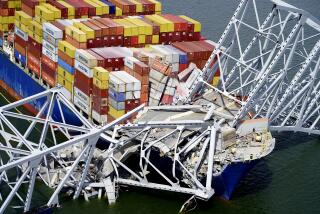Five years after 34 died in Conception boat fire, NTSB says Coast Guard hasn’t reformed
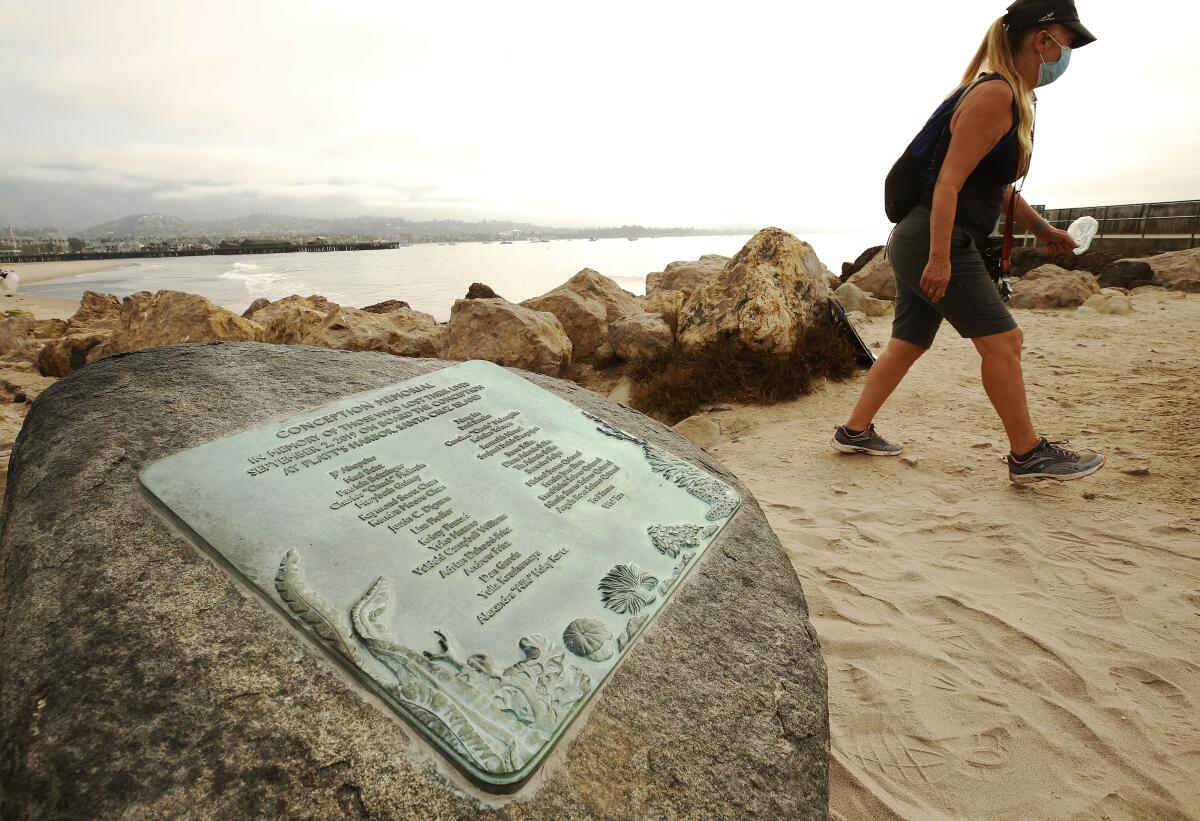
Five years after California’s worst modern maritime disaster, relatives of the Conception boat fire victims are angry about what they call the slow pace of accountability, while a top U.S. safety official says the Coast Guard continues to stall on reforms.
Thirty-four people died aboard the Conception on Labor Day in 2019, when a fire erupted on the main deck while dozens of divers slept in a windowless bunk room below. In the smoke and chaos, they desperately tried to find a route to safety on the 75-foot dive boat but could not escape.
Jennifer Homendy, chair of the National Transportation Safety Board, castigated the Coast Guard at a news conference Monday for failing to require safety management systems for small vessels.
“How many deaths have to occur? How many injuries have to occur? How many families have to stand up here at a press conference grieving for their loves ones before action is taken?” Homendy said as she stood near a plaque at Santa Barbara Harbor that commemorates the Conception victims. “And how many times does Congress, which did it again in 2021, [have to] tell the Coast Guard to take action?”
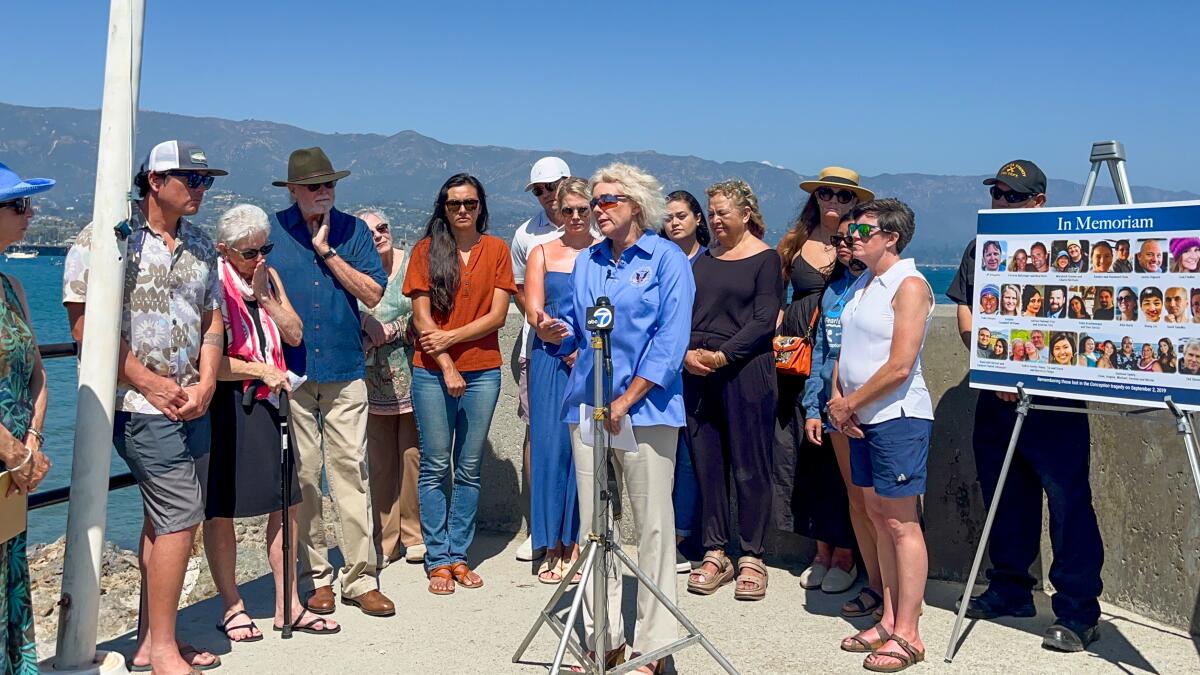
Homendy, joined by victims’ relatives, said her agency has made recommendations dating back more than two decades for safety management systems — most recently after the Conception fire.
She sent a letter Monday to the Homeland Security secretary and the head of the Coast Guard asking to implement change “with all possible haste.”
Coast Guard Vice Adm. Peter Gautier, in a July letter to the NTSB, wrote that it had been “dilgently working” on a notice of a proposed rule making with “all due haste” on safety management systems. But Homendy said that explanation is unacceptable “given the lengthy inaction.”
Homendy said a safety management system sets out common sense rules and procedures about what training must take place, what emergency drills must be done and how roving watches should be in place to detect fires. These were all massive failures five years ago, she said, when five crew members asleep in the wheelhouse on the top deck were jolted awake by shouts of “Fire! Fire!” shortly after 3 a.m.
“We’re gonna die,” one passenger was heard during a haunting, 24-second video recorded by passenger Patricia Ann Beitzinger, according to evidence presented at the the 2023 federal criminal trial of Conception Capt. Jerry Boylan.
The video shows the dark outlines of people trapped in the bunk room as the fire approaches. The voices are muffled and difficult to hear, but prosecutors supplied a transcript to jurors during Boylan’s trial: “There’s got to be a way out.” “There’s got to be more extinguishers.”
All 33 passengers and one crew member would die of smoke inhalation.
Inside the bunk room, victims were found with mismatched shoes, one clutched a phone and another, a flashlight. Two were interlocked so tightly they had to be pried apart. As the passengers fruitlessly tried to escape, Boylan and four crew members jumped from the top deck into the waters of Platts Harbor on Santa Cruz Island. Boylan, who had not ordered a roving night watch as people slept, was convicted in 2023 of seaman’s manslaughter and sentenced in May to four years in federal prison.
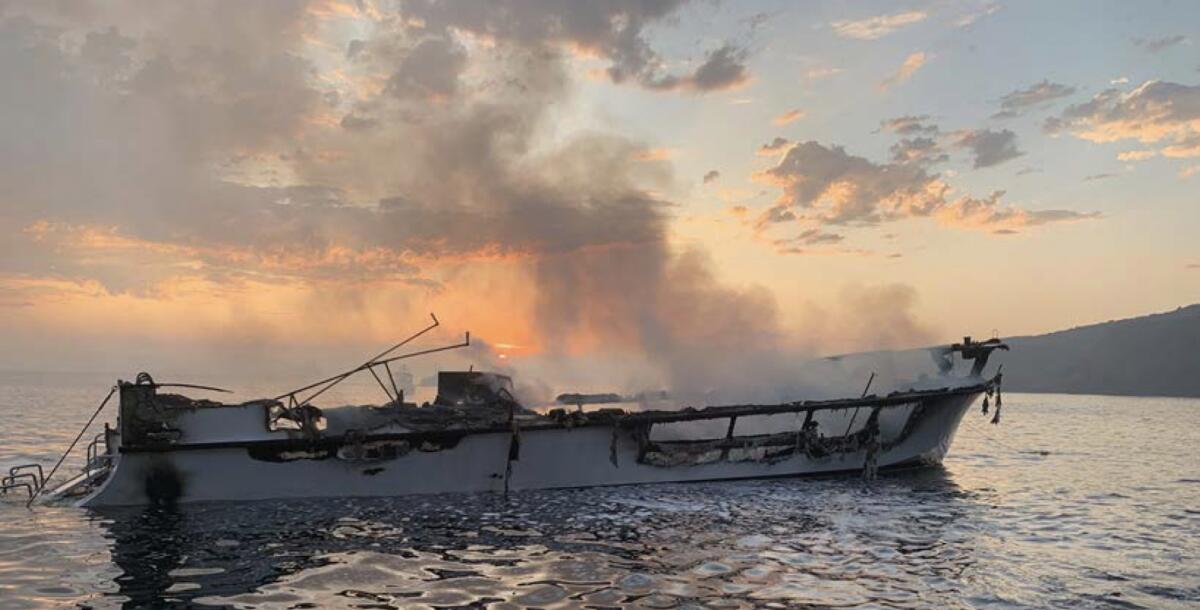
Investigators with the Bureau of Alcohol, Tobacco, Firearms and Explosives determined that the fire started in a plastic trash can on the main deck on what was to be the final day of a three-day dive trip.
At the time, such bins were forbidden in all vessels’ sleeping areas, and banned from all compartments on newer boats, but were allowed on old ones such as the Conception, records show.
But Homendy said Monday that although the fire may have been caused by cigarattes thrown in a trash can, “more than likely” it was lithium ion batteries from phones and photography that were being charged.
The families have complained for years about what they call foot-dragging by authorities. They also have expressed anger over Boylan remaining free while he appeals his conviction. “We have no rights, we are given no consideration,” said Kathleen McIlvain, who son Charlie McIlvain is among those who died on the Conception.
“It wasn’t an accident, it was a disaster waiting to happen,” said Vicki Moore, whose husband, Raymond “Scott” Chan, 59, and daughter Kendra Chan, 26, died. Speaking at the harbor Monday, she said that although reforms have been made, without the implementation of safety management systems the tragedy will repeat itself.
Meanwhile, lawsuits against the Conception’s owners, Truth Aquatics and its boss, Glen Fritzler, remain unresolved.
NTSB recommendations in the wake of the Conception tragedy for fire detection systems, proper dual escape routes, emergency escape drills and checks on night watches have been implemented. Congress mandated those provisions in December 2020 as part of the Elijah E. Cummings Coast Guard Authorization Act.
But Homendy said that safety gaps persist even with those reforms, and that the Coast Guard has yet to show how it is monitoring those changes.

The rear admiral of the Coast Guard said in a 2021 congressional hearing that in weighing new rules, it is required to consider the economic costs and benefits of implementation.
Homendy said she keeps hearing about the cost, but motioning to the grieving families, she added, “This is the cost.”
“I am begging the Coast Guard to take action,” she said. “If the companies aren’t going to do it, who’s there to protect safety?”
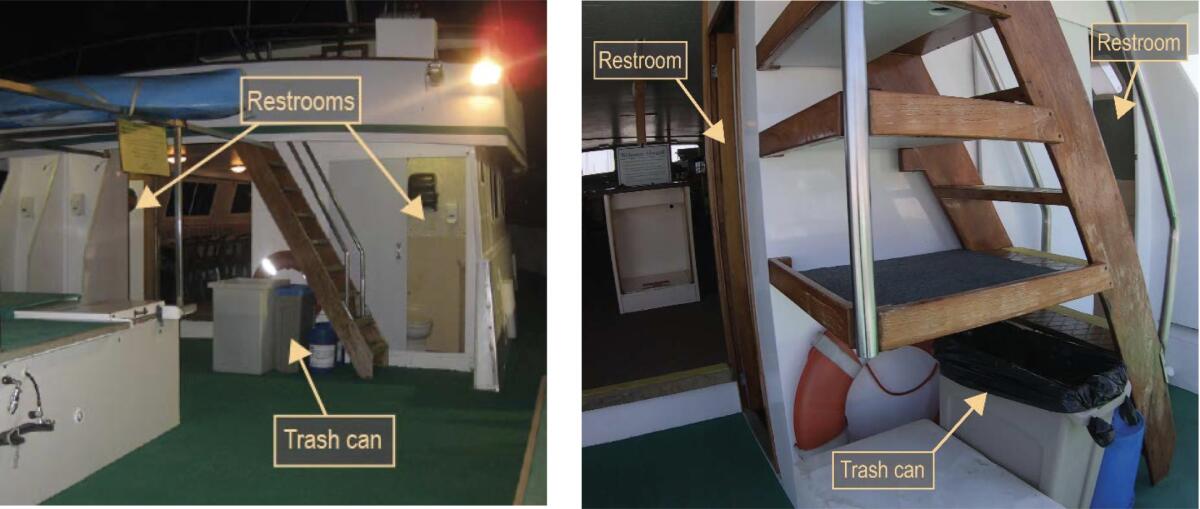
An NTSB investigation found that the Conception did not operate a roving watch, a failure that allowed the fire in the middle deck of to go undetected for up to half an hour. It did not determine a cause but blamed Truth Aquatics and Fritzler for a lax safety culture.
Prosecutors accused Boylan of a slipshod approach to training, leaving everyone on board responsible for their own safety. Boylan’s lawyer said the lack of a roving watch and the approach to safety training had been part of “the Fritzler way” for decades, referring to the boat’s owner.
More to Read
Sign up for Essential California
The most important California stories and recommendations in your inbox every morning.
You may occasionally receive promotional content from the Los Angeles Times.

